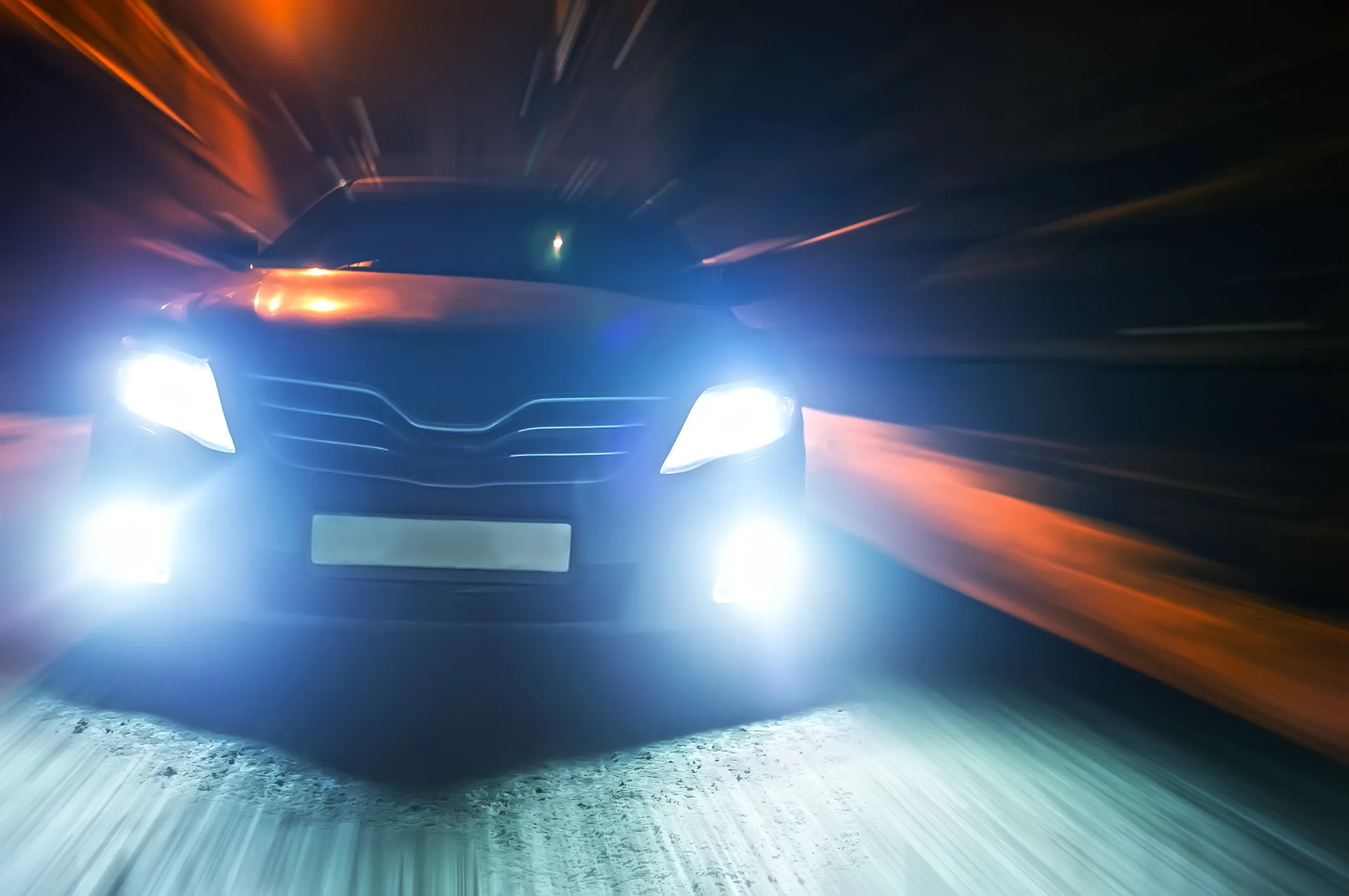
VTL 375-3, Failure to dim headlights
Vehicle and Traffic Law 375-3 requires motorists to dim their “high beams” when approaching a vehicle in the opposite direction. The purpose of this law is obvious - it is to avoid blinding oncoming drivers. If you send back this ticket with a guilty plea you will automatically get two points on your license. The exact fine is up to the judge’s discretion, with the maximum being $150 plus a mandatory $63 surcharge. More costly than the fine is the increased insurance rates. When you renew your policy bi-annually, your insurance company will check your driving record. With violations appearing on your record, your insurance company will likely increase your premiums. It typically takes a few years of higher premiums before your rates can come back down.
Statute
The language is brief and to the point:
Headlamps required pursuant to the provisions of subdivision two of this section may be of the multiple beam type designed to produce more than one distribution of light or of the single beam type designed to produce only one distribution of light.
Provided that, whenever a vehicle approaching from ahead is within five hundred feet, or when approaching a moving vehicle from the rear and within two hundred feet of the same, the headlamps, if of the multiple beam type, or the auxiliary front facing lamps, if the vehicle is so equipped, shall be operated so that dazzling light does not interfere with the driver of the approaching vehicle, or the vehicle being approached, and, whenever the highway is so lighted or traffic thereon is such that illumination of the highway for more than two hundred feet ahead of the vehicle by lights on such vehicle is unnecessary or impracticable, the headlamps, if of the multiple beam type, or the auxiliary front facing lamps, if the vehicle is so equipped, shall be operated with the lowermost distribution of light in use. Nothing contained in this subdivision shall be construed to prevent the use of flashing high beams to signify an intention to pass a vehicle or vehicles when two or more vehicles are traveling in the same direction, the operation of any headlamp as defined in paragraph d of subdivision two of this section, nor shall it apply to any auxiliary front facing lamp permitted to be displayed only on an authorized emergency vehicle.
Warning Other Motorists of a Speed Trap
It is common practice to warn drivers of a speed trap by momentarily flashing the high beams. Some police officers take affront to this practice and will pull over the flashing driver and charge them with VTL 375-3. New York State Court Decisions have overturned convictions on such grounds. In a 1994 decision, the Appellate Division, Second Department held that flickering high beams do not amount to “dazzling lights.” People v. Lauber, 162 Misc.2d 19, 617 N.Y.S.2d 419 (2d. Dept. 1994). In 2009, the Fourth Department declared more directly that the flashing of lights by itself is not a violation of the New York Vehicle and Traffic Law Code, and that stopping a vehicle based upon the driver flashing his or her high beams is illegal. People v. Rose, 67 A.D.3d 1447, 889 N.Y.S.2d 789 (2009). If you were stopped and cited with this violation, you should fight the ticket. The Benjamin Goldman Law Office has experience fighting this particular charge and has been successful in getting them dismissed or reduced to minor violations like parking tickets.
The Benjamin Goldman Law Office
The Benjamin Goldman Law Office is a New York State traffic ticket defense firm. We first opened in 2011, and after seeing much success, we expanded state-wide over the years. Our firm will now take on any traffic related charges anywhere in the state, from Brooklyn to Buffalo and all places in between. The attorneys we employ have substantial experience with Vehicle & Traffic Law. Our team fights hard for each client, not resting until we are assured that we obtained the most optimal disposition. The many five-star verified reviews attest to our efforts. We will be glad to take on your case and we will provide all motorists with a free consultation. You can contact us via phone call, text message, or email. Our team looks forward to helping with your case.
CALL NOWOther Traffic Violations We Handle
Victims of being struck by a driver failing to dim their headlights can reach out to the Sternberg Injury Law Firm for a consultation
Disclaimer: All the content of this website has been prepared by Benjamin Goldman Law Office PC for informational purposes only and does not constitute legal advice. The information on this website shall not be construed as an offer to represent you, nor is it intended to create, nor shall the receipt of such information constitute, an attorney-client relationship. Our hope is that you will find the information useful and informative, and we would be happy to communicate with you and answer any questions you may have about our legal services. Readers should not act upon the information on this website, or decide not to act based upon the information on this website, without first seeking appropriate professional counsel from an attorney licensed in the home state of the drivers license of the person who received the relevant traffic citation.